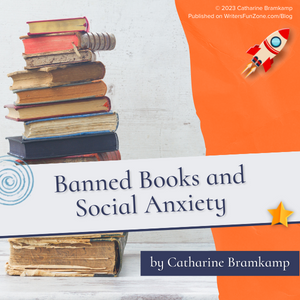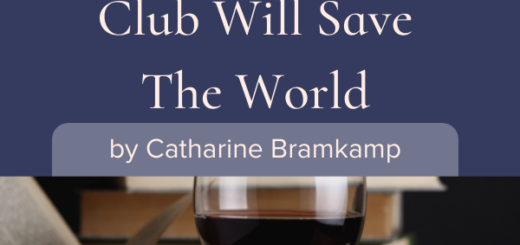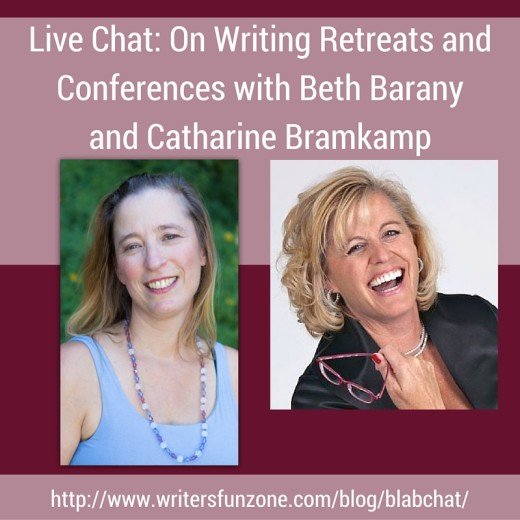Banned Books and Social Anxiety by Catharine Bramkamp
 Let’s welcome back monthly columnist Catharine Bramkamp as she shares with us “Banned Books and Social Anxiety.” Enjoy!
Let’s welcome back monthly columnist Catharine Bramkamp as she shares with us “Banned Books and Social Anxiety.” Enjoy!
***
Banned books are big news but the news could be different.
What was your favorite child or YA (young adult) book? Has it been banned? Mine has.
My favorite book was Harriet the Spy by Louise Fitzgerald. The adventures of a middle school girl who lived in exotic upper east side Manhattan. She had a nanny, a cook, and blessedly distracted parents. Every day after school she spies on her neighbors and writes out her experiences in her journal. I loved her independence, I loved New York, and it was she, Harriet, who inspired my lifelong journaling habit.
In 1983, complaints were levied during a Xenia, Ohio school board meeting that Harriet the Spy encouraged children to disrespect their parents by lying, talking back, cursing, and spying on others. Harriet was also cited as a bad influence on children due to her abrasiveness and improper behavior.
What 11 year old doesn’t want to act improperly? It’s our job.
What aspiring writer doesn’t keep a journal?
What writer doesn’t spy?
In any cafe I find I lean back as far as is polite just to catch the language between friends, or to listen to the difference between how a newly married couple argues versus a disagreement between long term partners. How else to learn? Thank you, Harriet.
But outrage is the new black: fearsome mother groups, conservative mayors and governors, hysteria over the college level Critical Race Theory taught in kindergarten, pearl clutching over the latest K-pop dance. There are many trends and outrages to choose from, so why assault books?
That is what should interest writers.
Book banning is an evergreen outrage.
Films come and go, but the banned book list is fairly consistent decade to decade. Why? Because films will absorb into the general culture and become quaint, even trivial.
Video games become technically dated, new information informs a class or lecture. What was controversial last year is common knowledge this year.
A well crafted story stands, universal truths, like being in want of a wife, are more than evergreen, they resonate across cultures and across time.
But books? A well crafted story stands, universal truths, like being in want of a wife, are more than evergreen, they resonate across cultures and across time.
This is never spelled out during arguments over book bans, but are apparent and unmentionable, likely because those people protesting books have a limited vocabulary to express their outrage.
And in that outrage is the wonder of our craft.
Reading changes the brain.
A deep dive into the life and experiences of a fictional character can create empathy and understanding about another culture, another person on a level unmatched.
Reading is literally walking in another character’s shoes.
And that is scary.
Would reading a book about a spy make me want to be a spy? Not specifically. It wasn’t Harriet Welsch’s specific after-school occupation that inspired me, but her whole package.
I wanted a piece of Harriet’s gumption, her ability to pivot when necessary, her ability in the end to privilege relationships over truth.
You probably agree that when it comes to books, all publicity is good publicity.
This applies to libraries as well. Each time a library comes under fire, either because the staff is forced to remove books (and the list of dangerous books is always helpfully published) or because they refuse (again with a helpful list of the contested books), the library glows as a subversive place of information and access. Who wouldn’t want to join the rebellion?
Free information is one of the cruxes of a working democracy.
That premise may have been scrubbed from 8th grade history textbooks but it still stands, evidenced by protests at school board meetings.
The hysteria about reading is one of the best signs I’ve seen since social media exploded all over our society.
From Martin Luther insisting that the word of God could be read by an individual in his or her native language to the rise in the 19th century of Penny Dreadfuls, adventure stories that taught an English generation to read, there are always groups who eye any book with suspicions and high anxiety. They are not wrong.
To keep our jobs and our reputations, it is in our best interest to continue poking the establishment, to continue to create wild and unpredictable characters with gumption to take on the status quo: Harriet the Spy, Pippi Longstocking, Katniss Everdeen, It is a dangerous job: it’s always been necessary.
What have you learned from your favorite banned book?
My new book, Deep Trouble, is now out!
***
Want to read more articles like this one Writer’s Fun Zone? Subscribe here.
***
ABOUT THE AUTHOR
 Catharine Bramkamp is a successful writing coach, Chief Storytelling Officer, former co-producer of Newbie Writers Podcast, and author of a dozen books including the Real Estate Diva Mysteries series, and The Future Girls series. She holds two degrees in English and is an adjunct university professor. After fracturing her wrist, she has figured out there is very little she is able to do with one hand tied behind her back. She delights in inspiring her readers.
Catharine Bramkamp is a successful writing coach, Chief Storytelling Officer, former co-producer of Newbie Writers Podcast, and author of a dozen books including the Real Estate Diva Mysteries series, and The Future Girls series. She holds two degrees in English and is an adjunct university professor. After fracturing her wrist, she has figured out there is very little she is able to do with one hand tied behind her back. She delights in inspiring her readers.






